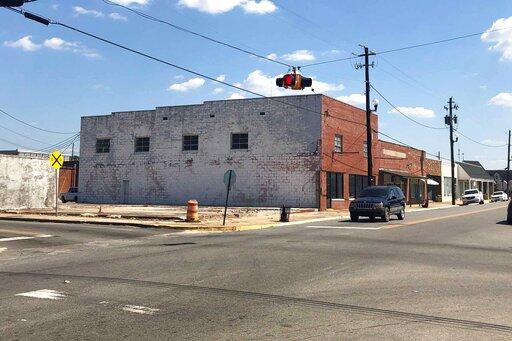Section Branding
Header Content
Voting Site Reopened After Grassroots Fight
Primary Content
When local election officials shut down a polling site in a predominantly black area of a rural Georgia county, displaced voters couldn’t look to the federal government to intervene as it once did in areas with a history of racial disenfranchisement.
So residents banded together, circulating petitions pressuring the Jeff Davis County elections board to reconsider, while advocacy groups sent pre-lawsuit demands and organized turnout at board meetings. The grassroots struggle took two years, but county officials finally relented and agreed to reopen the polling site.
With hundreds of voting sites closing or consolidating nationwide, the victory in Jeff Davis stands out as a rare expansion of in-person voting access since the 2013 Supreme Court decision that freed Georgia and other states from the Voting Rights Act of 1965’s requirement to prove to the federal government that voting changes won’t be discriminatory.
Most of the African American residents of Hazlehurst, about 100 miles west of Savannah amid pine forests and cotton fields, have voted at the polling site for years and were surprised when it was shuttered in August 2017. They were reassigned to a new, consolidated poll across town just as the Georgia governor’s race was beginning to heat up.
“We couldn’t understand or see why the poll was closed,” Helen Allen said in a recent interview.
The 67-year-old had been voting at the little white clapboard building in a dirt lot between a cemetery and an office supply warehouse since she moved just down the road in 1982.
She said some older and disabled residents became concerned about how they’d get to the new polling place. Residents began “talking about the hardship and how they didn’t want to go all the way across town,” Allen said.
Julie Houk, managing counsel for election protection for the Lawyers’ Committee for Civil Rights Under Law, said polling site closures can create tremendous barriers for voters, especially those with low incomes or no personal vehicle, and they are too often carried out in minority communities.
“We’ve seen that happen in Georgia time and time again where it’s the minority voter community who are more disadvantaged by these poll closures than anyone else, and that raises serious concerns,” Houk said.
Poll closures were one of several voting rights issues that arose during the heavily scrutinized 2018 governor’s race between Democrat Stacey Abrams — the nation’s first black woman nominee for governor from a major party — and current Republican Gov. Brian Kemp, previously the state’s chief elections officer.
A plan by local elections officials to close seven of nine voting locations in majority-black Randolph County months before the election drew a national media storm. The plan was quickly sidelined after facing strong opposition from voters and civil rights groups.
A recent report from civil rights group Leadership Conference Education Fund found 1,688 polling place closures between 2012 and 2018 in areas previously subject to the Voting Rights Act preclearance requirement that was invalidated by the Supreme Court in 2013.
The report cites data gathered by the Atlanta Journal-Constitution that found 214 Georgia precincts closed in that six-year period — about 8% of the state’s polling places.
Houk said that, with the preclearance requirement gone, it has been “open season, practically, on polling locations.”
Advocates say the stakes are especially high less than a year ahead of elections with the presidential contest and two U.S. Senate races on the ballot in Georgia.
“As we approach the 2020 elections, the focus should be on improving access to the ballot for Georgia voters, not on closing polling places and placing unnecessary burdens on voters,” Phyllis Blake, president of the Georgia State Conference of the NAACP, said in a statement about the poll reopening.
Just outside the county courthouse in Hazlehurst, where local election offices are housed, a large bust of Confederate President Jefferson Davis towers over visitors. Inside, Jeff Davis County Elections Supervisor Christy Riner wears a welcoming smile and a bright pink T-shirt as she encourages people to vote.
Riner, like many officials involved in recent poll closures, said the choice to consolidate polling places came down to budget concerns. “Basically, we looked at the money — the cost savings — and the distance” between polling sites, Riner said, before determining the county could get by with fewer.
As community pressure escalated, a key personnel change tipped the scales in the Hazlehurst precinct’s favor. Allen, spurred by the poll closure to throw her hat into the ring, was appointed to the county elections board.
With Allen on the board, officials reversed course and reopened the Hazlehurst site in August, two years after it closed.
“This reversal shows the power of resistance and the impact that we can have by leveraging our voices against injustice,” Lawyers’ Committee counsel John Powers said in a statement.

